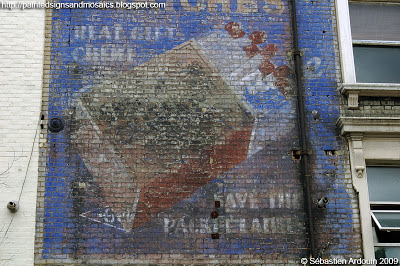In the 1920s the British market for matches was largely dominated by Brymay. Over the years the company originally founded by Francis May and William Bryant in 1861 had merged or bought many of its competitors. However in 1930 two new brands landed in British shops: M.S. and Criterion, which came both from the Soviet Union.
The arrival of these two brands was part of a Europe-wide strategy by the Soviet authorities to regain a foot in countries where its manfacturers had been major players before the First World War and to counter the advance of Kreuger and Toll's Swedish Match Company. Kreuger, a great and extremely wealthy businessman (who would also be known after his death as one of the world's greatest swindlers), had increased dramatically the presence of his trust across most Europe and had even managed to secure a virtual monopoly in several countries in return for awarding large loans to their governments. As a result throughout the 1920s Soviet match manufacturers lost precious markets like Germany. The answer of the authorities in Moscow was to increase production from 4,000 million boxes before the Revolution to 7,000 million boxes by 1927-28 in order to flood the markets. In a bid to increase their share and ultimately drive out competition, matches made in the USSR were often sold at reduced prices, leading to accusations of dumping. Soviet brands also ran reward schemes. Although the British market was different and the share held previously by Russian manufacturers was negligible, it was a potentially lucrative market. This explains why this Soviet "offensive" finally reached Britain in 1930.
During the 1930s adverts for Criterion Safety Matches appeared in the press and in the streets. Several, like today's ghost sign, emphasised the company's gift schemes. Criterion was sold in packets of 12 boxes of around 45 matches and customers had to collect the labels to claim their rewards. For 100 labels they would get 7 lbs of fruit bonbons. If they did not give in to their kids and managed to collect 1,500 labels, they could get either a guitar or 1 lb of Russian caviar. Finally, with 1,700 labels, they could decorate their living room with a fine rug from Turkistan. Additionally some labels could win lucky customers cash prizes of £275 (£275 in 1939 is equivalent to £15,000 in 2012).
In spite of these efforts, Criterion safety matches do not seem to have been able to gain a firm seat in Britain (at least they are barely mentioned in documents and books about the matches market). The Second World War would have disrupted both production and the supply chain and efforts to come back once the war ended do not seem to have paid. Criterion matches may have remained available for a few years after the Second World War but seem to have disappeared from British homes by the late 1950s.
This ghost sign for Criterion was painted over an earlier one for Gillette Safety Razors.
Matches | Gillette Safety Razor |
Scheme
Pack of Criterion Matches / British Made
Save the
Packet Labels
The Gillette logo (the name in a lozenge) is partly hidden by the lower left corner of the matchbox.
While Gillette emphised its razors were "British Made", on the drawing of the matchbox the sign painter has not included the mention "Foreign Made", which featured on the packs themselves. The mention "Foreign Made", which was found on the first versions of the Criterion labels, was later replaced by "USSR Made." The sign painter did not include the words "Damp Proof" either. This may simply be because it would have cluttered the matchbox.
Safety Matches
Criterion
Registered Trademark
Average ... Matches
The matchbox on this wall, and in particular the design of the scrolls above and below "Safety Matches Criterion", match the one seen in a 1936 printed advert. On later designs (those with the mention "USSR Made"), the scrolls are straight and no longer rippling. The number of matches mentioned in the early designs varies between 45 and 50. Unfotunately the figure on the wall has completely disappeared.
Scheme
Packet Labels
Location: Messina Avenue / Pictures taken in August 2009



















No comments:
Post a Comment